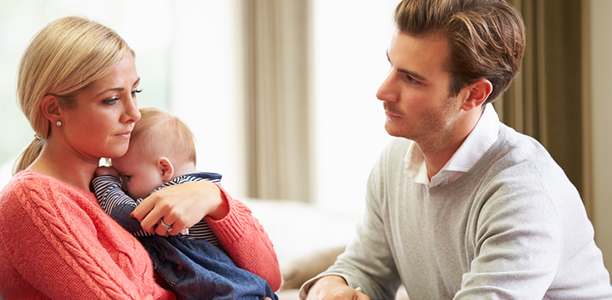A Charles Sturt University (CSU) psychology academic says while rural women and men are at the same risk of suffering from pre- and post-natal depression as their metropolitan counterparts, the way they experience them are unique.
Associate Professor Gene Hodgins in the CSU School of Psychology made his comments at the start of Perinatal Depression and Anxiety Awareness Week, from Sunday 12 to Saturday 18 November.
Dr Hodgins trained as a clinical psychologist and then worked in regional Victoria, and has seen the effects of perinatal depression during his work with patients and post-natal support groups.
“Pre- and post-natal depression can affect women and men,” Dr Hodgins said. “It’s certainly normal to feel anxious or sad at times in the first twelve months of childbirth because it can be such a huge adjustment period.
“The difference between normal sadness and clinical depression, however, is when it impacts on your functioning.
“If you find it hard to take part in activities of daily living, you struggle to work, to get out of bed, have a shower, or you avoid talking to friends, that is a sign something is wrong. Often it’s not the person who is suffering who notices, but their partner or friends.”
According to Perinatal Anxiety and Depression Australia (PANDA), the illness affects approximately 100 000 families across Australia every year and can even put lives at risk.
Established by PANDA in 2005, the Week aims to raise awareness about perinatal anxiety and depression, including signs to look out for and where to go to seek support.
“If you have a friend or partner who has a four-week-old baby at home, and you are talking to them and they start crying, often your first instinct is to try to fix their problem to make them feel better. Instead, often the best thing to do is just listen and let them know they’re supported,” Dr Hodgins said.
“If you feel they need more assistance, they can make an appointment with their GP or contact PANDA. It doesn’t happen very often, but if they’re really at risk and talking about self-harm, then you stay with the person to keep them safe and ring 000.”
Dr Hodgins said women and men in regional areas are at high risk of feeling levels of anxiety and depression during pregnancy and after childbirth.
“It happens everywhere, but if you are on a farm with a new child, you can feel quite isolated. While there are fewer services available than in metropolitan areas, thankfully there are still great services available including GPs, women’s health centres, and online information such as PANDA’s website. There are people who are available to help, but it can take courage to ask for that assistance.” During Perinatal Depression and Anxiety Awareness Week from Sunday 12 to Saturday 18 November, Perinatal Anxiety and Depression Australia’s ‘It happened to me’ campaign will be encouraging people everywhere who have been affected by perinatal anxiety or depression to start a conversation about the condition.
(Source: Charles Sturt University)










